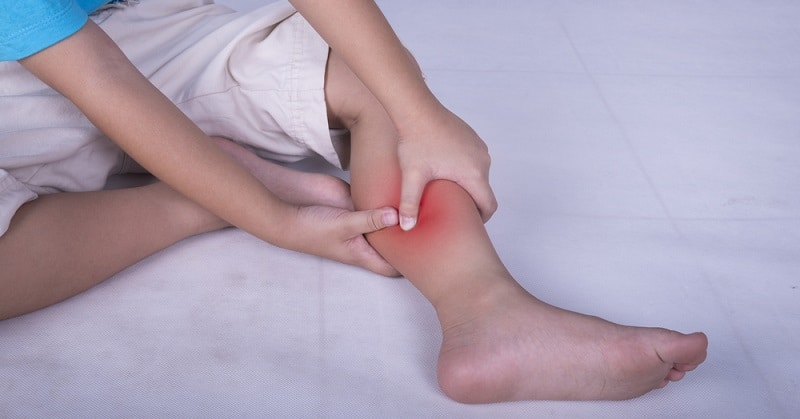Experts report that as high as 60% of all adults report experiencing nocturnal leg cramps. Waking us up in the middle of the night and interrupting our sleep, these cramps are not only painful but are also an extreme nuisance. Most often located in the calf muscles, they can also occur either in the feet or thighs.

Lasting anywhere from just a few seconds to several minutes (that can feel like hours), the cramping can range from a slight discomfort to an intense pain, which can result in longer lasting muscle soreness and fatigue. While anyone can experience these cramps, they are most common among those who are middle-aged or older, and in athletes and those who exercise later at night.
Why Do My Legs Cramp Up?
- Overexertion: Working out right before bed leaves the muscles fatigued, which can lead to cramping throughout the night. Instead, workout earlier in the day to allow your body to have time to relax and recuperate first.
- Hypothyroidism: Your thyroid plays an important role in calcium absorption and utilization. Without this occurring your body experiences a calcium deficiency leading to muscle weakness, numbness, cramps, and pain.
- Dehydration: Your muscles are composed of 75% water. Maintaining proper hydration helps the muscles to contract and relax, as well as to circulate the necessary nutrients throughout the body.
- Uncontrolled Diabetes: Diabetes can lead to diabetic neuropathy, a form of nerve damage. This can cause feelings of numbness and tingling, as well as a sharp pain in the legs. High blood sugar levels can also lead to dehydration.
- Prolonged Standing: Standing for prolonged periods of time, especially while wearing poorly fitting shoes or high heels can lead to a muscle fatigue similar to having completed an intense workout.
- Alcohol Abuse: Acting as a diuretic, excessive alcohol consumption can lead to dehydration. Alcohol abuse can also lead to alcohol neuropathy, which is responsible for muscle cramps and leg pain.
- Nutritional Deficiency: There are many different nutrients that work together to promote optimal muscle function including potassium, calcium, sodium, and magnesium. A deficiency in any of these minerals can lead to cramping.
- The Use of Specific Medications: There are a number of medications that can lead to muscle cramps in the legs including cholesterol-lowering agents, diuretic, birth control pills, steroids, and antipsychotics.
- Pregnancy: Nighttime leg cramps are a common side effect in the second and third trimester of pregnancy, largely due to feelings of fatigue and reduced circulation to the legs.
What Can I Do to Prevent Nighttime Leg Cramps?
While it is hard to pin point the exact reason why you are experiencing muscle cramps, there are a number of steps that you can take to prevent nighttime leg cramps. These include:
- Take a daily multivitamin.
- Avoid drinking coffee and cola beverages, both of which have been found to lead to dehydration.
- When experiencing a muscle cramp, apply a hot compress to relax and loosen up the muscle.
- Ensure that blankets and sheets are kept loose around your feet to prevent distorting the toes and the angle of your feet as you sleep.
- Drinking plenty of water throughout the day to prevent dehydration.
- Take a warm shower or bath to relax muscles if you are experiencing cramping over a larger area of the leg.
- Boost the magnesium levels in your diets. Nuts and seeds are both high in magnesium.
- Take the time to stretch out your leg muscles prior to gong to sleep, easing any tension and tightening in the muscles.
- If you wake up experiencing a muscle cramp, get up and walk around, telling you brain that the muscle needs to contract and relax.
- Sports drinks that are high in electrolytes to prevent nutritional deficiencies.
- Avoid excessive alcohol consumption.
- Apply an ice or cold back to the muscle during cramping to relieve tension.
- Eat potassium rich foods including bananas, broccoli, oranges, grapefruit, grapes, apricots, cabbage, fish, pork, and lamb.
- If you are experiencing cramping in your legs, massage the muscle in question for approximately 10-15 minutes.